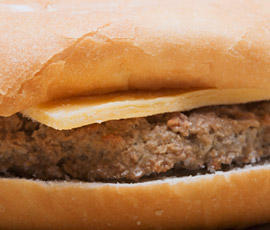Review of the Year: Horsemeat scandal

Supermarket bosses bore the brunt of consumer anger after it emerged that millions of beef products actually contained horsemeat.
The fiasco came to light after the Food Safety Authority of Ireland published findings in a study which revealed the presence of horsemeat in some beef burger preoducts – including 29% horse DNA in Tesco economy burgers.
In the days that followed, 10m burgers were withdrawn from sale – among others sold by Tesco, Lidl, Iceland, Aldi and Dunnes Stores. Meat processor ABP Foods halted production at its subsidiary Silvercreat Foods and EBLEX announced plans for random DNA meat tests.
Further meat products were withdrawn in the coming weeks – including by Waitrose, Burger King, Findus and Ikea. Meat plants were raided, arrests were made and DEFRA secretary Owen Paterson urged consumers, processors and retailers alike to ‘buy British’.
The scandal prompted Tesco to place full-page advertisements in national newspapers admitting to its failures – and a pledge to more closely with British farmers. The supermarket would source more meat “closer to home,” promised Tesco chief executive Philip Clarke.
Tesco’s promise has proved easy to make but much harder to fulfil. Almost 10 months later, farm leaders say more must be done for the retailer to honour its pledge – which was made in the glare of the media spotlight at the NFU’s annual conference in February.
While progress has been made, Britain’s biggest retailer came a cropper again in October. This time it was for selling New Zealand lamb steaks – with Tesco telling its customers that British lamb was out of season right at the peak of domestic production.
For more on this topic
See all the news and the timeline from the horsemeat scandal
